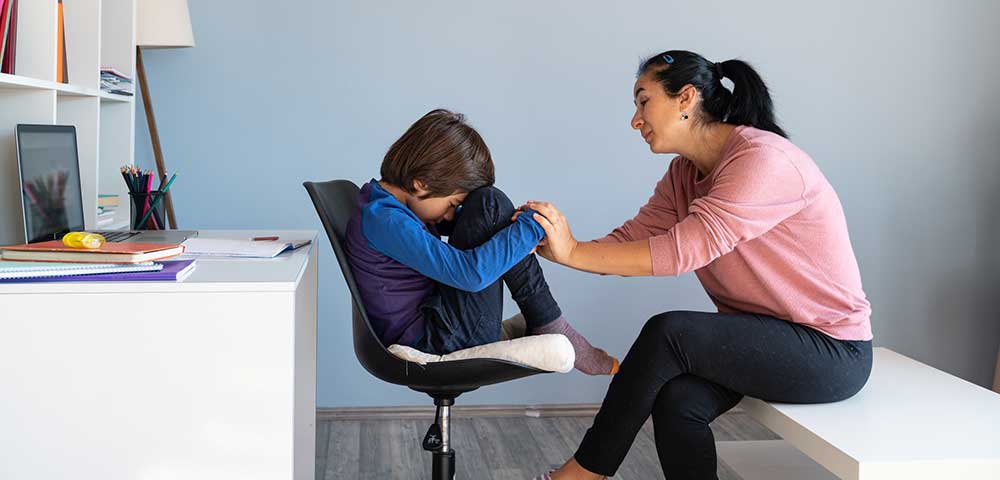Anxiety is at an all-time high
Childhood, and raising children, are the same as they always were but by today’s standards are almost completely different. The last few years have been incredibly anxiety provoking for anyone, with the pandemic and its resulting isolation, sexual harassment cases coming to light, school safety concerns and increased bullying online and in-person.
A Youth Risk Behavior Survey conducted by the Centers for Disease Control and Prevention in February 2023 revealed that 42% of high school-aged children felt hopeless or persistently sad, almost 30% reported poor mental health and 10% had attempted suicide. These numbers are staggering. What can you do?
- Listen to your kids without judgement or jumping in to solve their issues. Often, they will share more when riding in the car or on a walk; something where they are side-by-side instead of eye-to-eye can be less intimidating.
- Look for physical symptoms. Changes in sleep or eating habits can indicate a change in mental health. More drastic changes, such as ignoring daily hygiene, should also be noted.
- Encourage physical activity. Walking, cycling, playing tennis or even simple meditation can help calm anxiety before it ramps up and oftentimes, keep it totally at bay.
- Don’t feed the anxiety, help to calm it. As a parent, you probably have your own anxieties. Finding a way to manage your own symptoms and help your children manage theirs can keep things from escalating or spiraling
- Check in on yourself. Mental health housekeeping is so important. Taking a pulse of how you feel is crucial before discussing anxiety, depression or other emotions with your children.
The Child Mind Institute also offers great resources for dealing with anxious children, including managing stressors, learning coping mechanisms, and encouraging talks about their feelings. If you and your child are experiencing extreme anxiety, ruminating thoughts or any signs of depression, please reach out to a trained specialist to help.
Youth Villages Specialized Crisis Services has specially trained, master’s level crisis counselors available 24/7 to respond to crisis calls. Crisis staff provide the assessment and evaluation of the child, connecting them with a mental health clinician to help determine the best course of action for the child. Youth Villages will follow up with parents and providers within 24 hours of the initial crisis call.
Get help!
- 988 Suicide & Crisis Lifeline
- TN Crisis Hotline 1-855-CRISIS-1 or (1-855-274-7471)
- Tennessee Crisis Text Line by texting TN to 741741.
- Youth Villages Specialized Crisis Hotline at 1-866-791-9222.
Previously appeared in Pure Living – Nashville.

